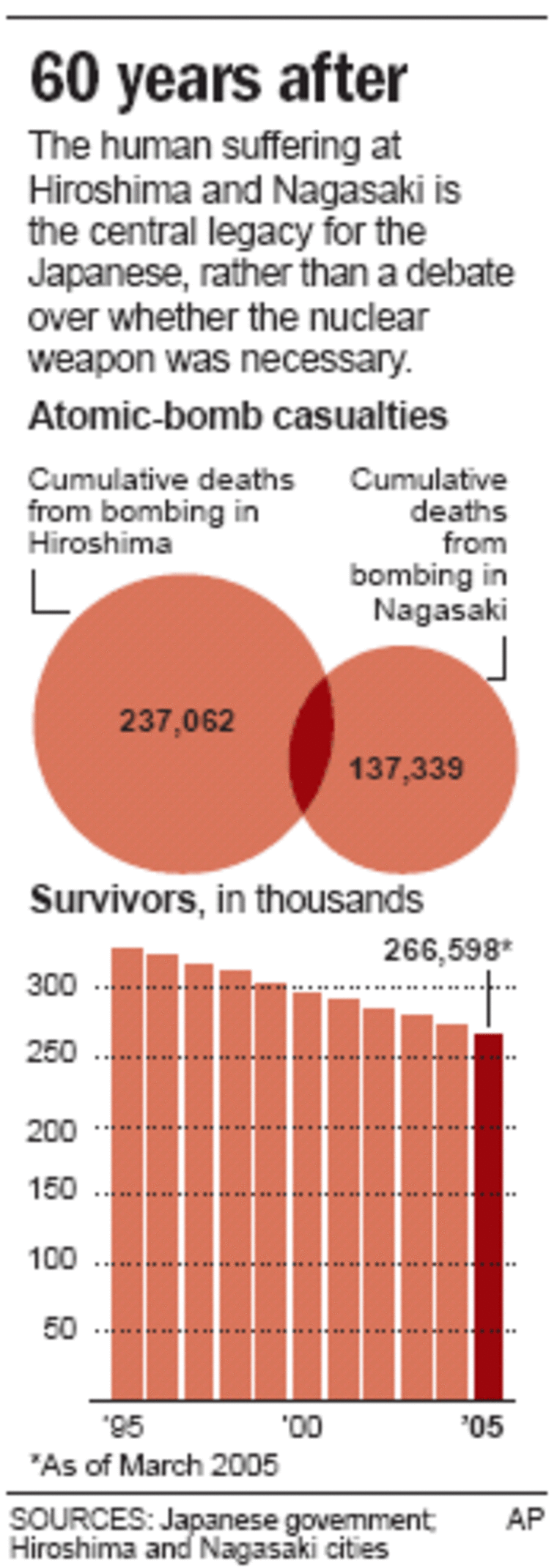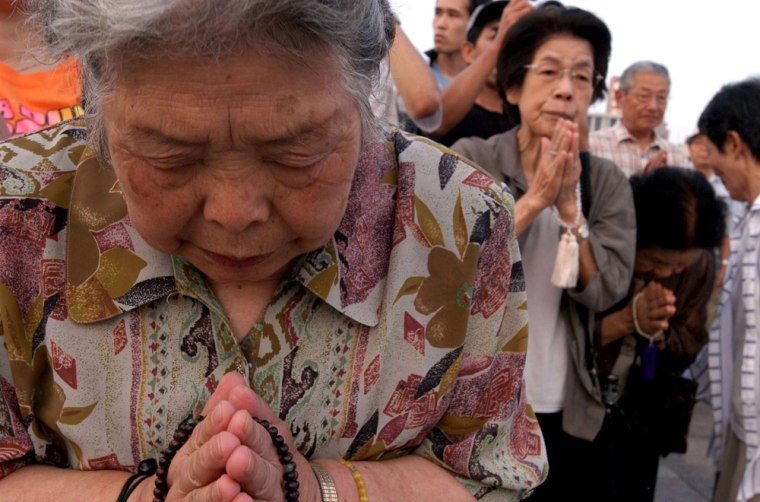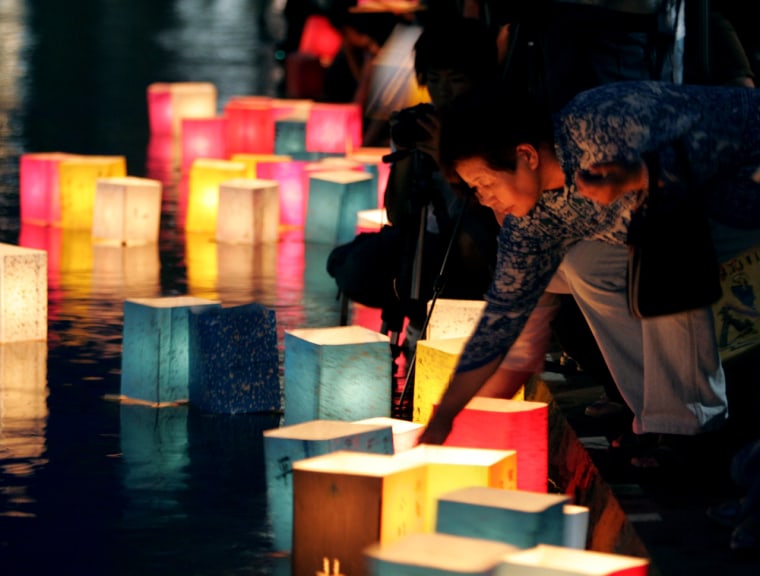Hiroshima marked the 60th anniversary Saturday of the first atomic bomb attack with prayers and water for the dead and a call by the city’s mayor for nuclear powers to abandon their arsenals and stop “jeopardizing human survival.”
At 8:15 a.m., the instant of the blast, the city’s trolleys stopped and more than 55,000 people assembled at Peace Memorial Park observed a moment of silence that was broken only by the ringing of a bronze bell.
A flock of doves was released into the sky. Then wreaths and ladles of water — symbolizing the suffering of those who died in the atomic inferno — were offered at a simple, arch-shaped stone monument at the center of the park.
Outside the nearby A-Bomb Dome, one of the few buildings left standing after the blast, peace activists held a die-in to commemorate the bombing that turned life to death for more than 140,000 and forever changed the face of war.
Remembering a day of horror
Fumie Yoshida was just 16 when Hiroshima was bombed. She survived but lost her father, brother and sister. On Saturday, she chose not to attend the formal memorial, but with a small group of friends paid her respects privately in the peace park.

“My father’s remains have never been found,” she said. “Those of us who went through this all know that we must never repeat this tragedy. But I think many Japanese today are forgetting.”
In a “Peace Declaration,” Hiroshima’s outspoken Mayor Tadatoshi Akiba vowed to never allow a repeat of the tragedy and gave an impassioned plea for the abolition of nuclear weapons, saying the United States, Russia and other members of the nuclear club are “jeopardizing human survival.”
“Many people around the world have succumbed to the feeling that there is nothing we can do,” he said. “Within the United Nations, nuclear club members use their veto power to override the global majority and pursue their selfish objectives.”
In a more subdued speech, Prime Minister Junichiro Koizumi offered condolences for the dead.
“I offer deep prayers from my heart to those who were killed,” he said, vowing that Japan would be a leader in the international movement against nuclear proliferation.
An ongoing tragedy
Though Hiroshima has risen from the rubble to become a thriving city of 3 million, most of whom were born after the war, the anniversary underscores its ongoing tragedy.

Officials estimate that about 140,000 people were killed instantly or died within a few months after the Enola Gay dropped its deadly payload over the city, which then had a population of about 350,000.
Three days later, another U.S. bomber, Bock’s Car, dropped a plutonium bomb on the Japanese city of Nagasaki, killing about 80,000 people. Japan surrendered on Aug. 15, 1945, ending World War II.
Including those initially listed as missing or who died afterward from a loosely defined set of bomb-related ailments, including cancers, Hiroshima officials now put the total number of dead in this city alone at 242,437.
This year, 5,373 more names were added to the list.
